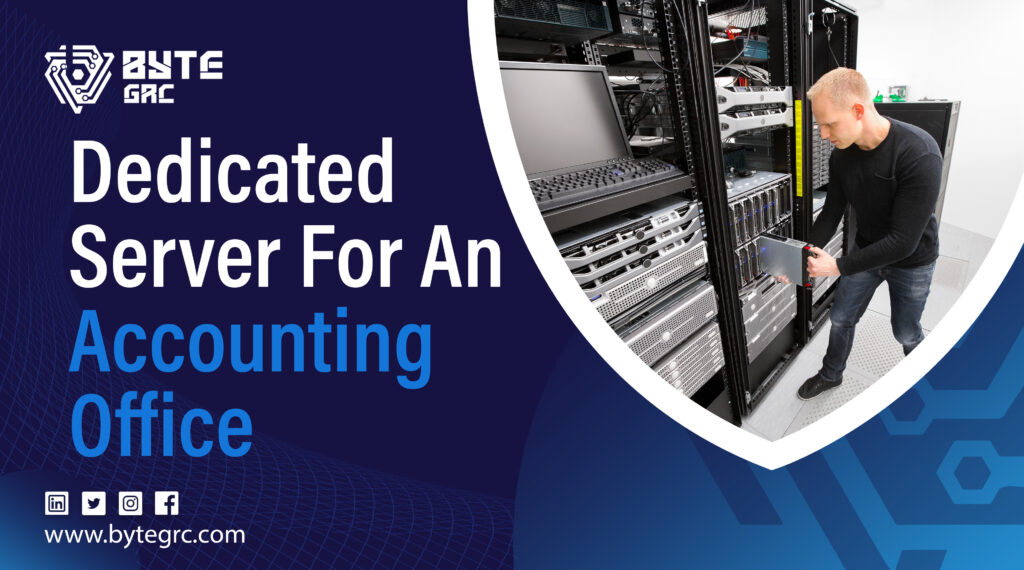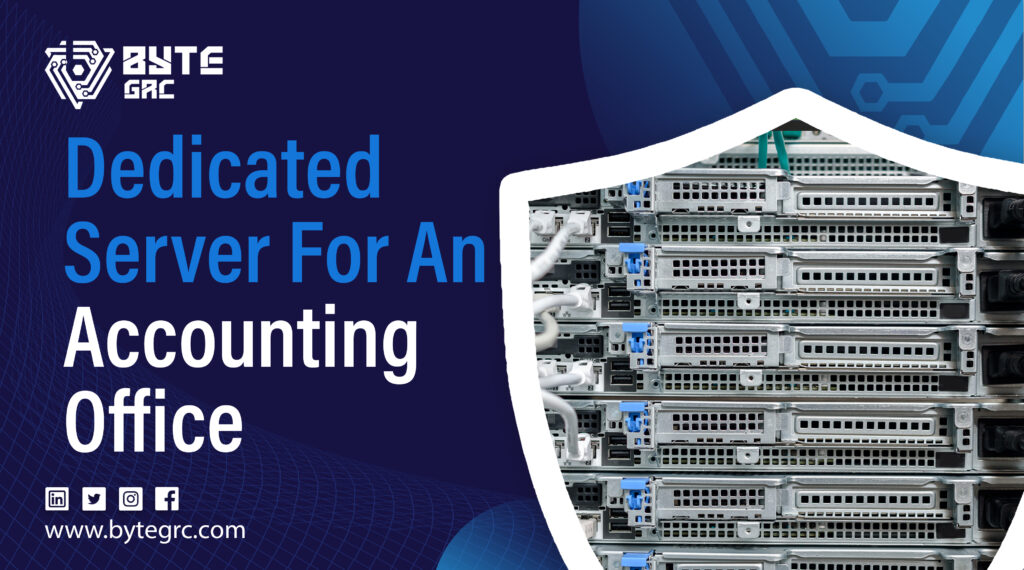|
Getting your Trinity Audio player ready...
|

Table of Contents
Dedicated Server For An Accounting Office: All You Need To Know
Are you running an accounting office like I do and your office has outgrown cloud based apps or you’re worried to make your clients data safe and secure? Then I would suggest you to invest in dedicated server. But you know not every business needs one, and choosing the right setup takes more than just guess.
Let’s understand what dedicated servers actually are, what they offer accounting professionals, and how to know if they’re worth it or not.
What is a Dedicated Server for an Accounting Office?
Accounting businesses usually deal with sensitive customer data, high-performance software, and strict compliance rules. A dedicated server provides a private environment, offering more control and reliability for handling all of that.
A dedicated server is a physical computing server used only by your business. It’s not shared with other companies, which means all its power, storage, and memory are exclusively yours. You can either host it in your office (on-prem) or rent one through a provider (off-prem).
Common Use Cases for a Dedicated Server for an Accounting Office
- Hosting Sage, QuickBooks, and Drake Tax software
- Providing the remote access to admin staff and bookkeepers
- Track compliance monitoring and data retention systems
- Centralize file storage for safe and secure document management
Benefits of Using a Dedicated Server for an Accounting Office
Dedicated server for an accounting server accounting office allows a secure, stable, and customizable platform that customize for sensitive data management.
1. Upgrade Data Security
Dedicated servers for an accounting office eliminate the risks that come from sharing space with unknown users on other servers. You’re not affected by other users’ vulnerabilities, and you can configure firewalls, antivirus software, and encryption policies that meet your specific criteria.
2. Great Performance for Heavy-Duty Apps
Tax season is hard even without software lag. Dedicated servers for an accounting office can handle huge QuickBooks files, tax platforms, and multi-user setups without lagging.
3. Complete Control and Customization
The accounting office is always in need of scheduling backups, restricting admin, and even install specialized tax software. Dedicated server for an accounting office assist you in handling each task and provide you with the complete control to software.
4. Reliable Uptime for Accounting Business Operations
Dedicated server for an accounting office is less prone to slowdowns and crashes than cloud-hosted tools. You’re also not hanging on third-party internet availability for software access, which means you stay productive even if a cloud app goes down.
5. Better Compliance
When you handle financial or personally identifiable information (PII), you may need to comply with regulations like SOC 2, HIPAA, or IRS Publication 1075. Dedicated servers make it easier to implement the technical controls those rules require.
The Challenges of Dedicated Server for An Accounting Office
While a dedicated server for an accounting office provides many benefits, it come with some challenges too.
Hardware Responsibility
The on-premises dedicated server for an accounting office required more power supply, maintenance, and cooling. This add major cost and complexity.
Scalability
Dedicated servers aren’t as immediately scalable as the cloud. If you need more power, you’ll often need to schedule an upgrade, migrate to a new server, or even reboot. You can still grow, but it takes planning.
More Cost & Resource Management
Dedicated server for an accounting office cost more as compare to shared or cloud plans. You have to pay for premium hardware and machine to yourself. You’ll also have to plan budgeting for managed hosting and IT support.
How to Choose a Dedicated Server for an Accounting Office
Choosing the right hosting provider is just as important as choosing the server itself. For accountants who may not have deep IT experience, the provider’s support, reliability, and performance of financial data needs will make all the difference.
Prioritize Server with Financial Experience
Look for hosts that serve enterprises with similar compliance needs—like healthcare, finance, or legal. They’ll be more familiar with things like IRS Publication 1075, SOC 2, and HIPAA standards, and can help guide your setup accordingly.
Look for Managed Hosting Options
Unless your company has dedicated IT staff, you’ll want a controlled server. This gives you the benefit of high performance and control without having to moniter the infrastructure.
Check the Provider’s Uptime Guarantee
Downtime means you can’t access client files, send invoices, or run reports. Look for a provider that guarantees 99.99% or higher uptime, ideally with documented SLAs (Service Level Agreements). Bonus if they offer proactive monitoring to detect issues before they become problems.
Confirm Support Availability
Make sure the provider offers 24/7 support, and trained technicians—not just ticket-takers- actually handle that support. Ask if they offer help with things like software installs (e.g., QuickBooks Desktop or Drake), firewall setup, or restoring from backups.
Ask About Backup Frequency and Recovery
Accounting data is mission-critical, so you want a host that provides automatic daily backups and an easy restore process. Ideally, backups should be stored off-site (not just on the same server), and you should be able to restore files from multiple past days.

Conclusion
Investing in a dedicated server for your accounting office can significantly enhance data security, ensure reliable performance, and provide the control you need to meet compliance requirements. While there are challenges associated with dedicated servers, the benefits often outweigh them, especially when handling sensitive client information. By choosing the right hosting provider and configuration, you can create a more efficient and secure environment for your accounting practices.
FAQs
1: What is a dedicated server, and how does it differ from shared hosting?
A dedicated server is a physical server exclusively used by one business, providing enhanced performance and security compared to shared hosting, where resources are shared among multiple users.
2: Can I host my accounting software on a dedicated server?
Yes, a dedicated server is ideal for hosting accounting software like QuickBooks, Sage, or Drake Tax, allowing for better performance and control.
3: What are the costs associated with a dedicated server for an accounting office?
The costs can vary based on hardware, managed services, and IT support. Generally, dedicated servers are more expensive than shared or cloud options but offer better performance and security.
4: How do dedicated servers improve data security for accounting firms?
Dedicated servers provide a controlled environment that minimizes risks from external threats and allows for customized security measures, such as firewalls and encryption.
5: Are there any downsides to using a dedicated server?
Yes, challenges include higher costs, the need for ongoing maintenance, and less immediate scalability compared to cloud solutions.
6: What should I look for in a hosting provider for a dedicated server?
Prioritize providers with experience in finance-related compliance, managed hosting options, strong uptime guarantees, and reliable 24/7 customer support.
